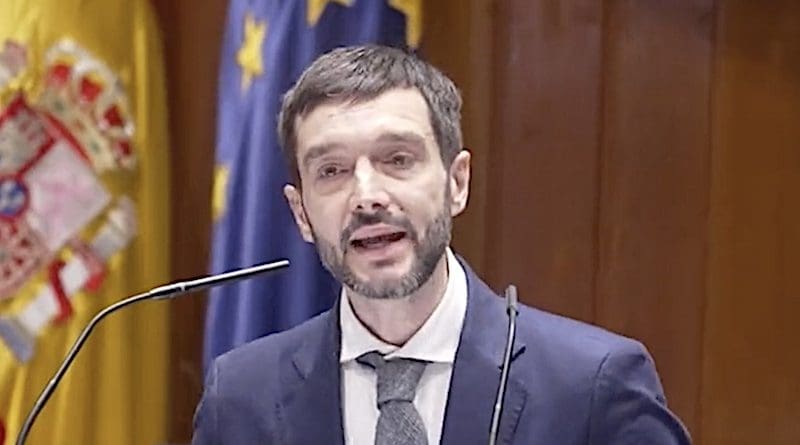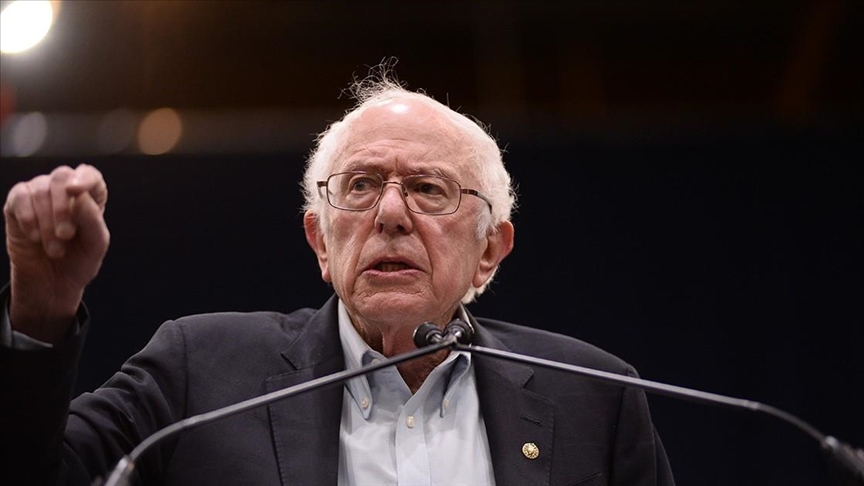What Trump promised oil CEOs as he asked them to steer $1 billion to his campaign

As Donald Trump sat with some of the country's top oil executives at his Mar-a-Lago Club last month, one executive complained about how they continued to face burdensome environmental regulations despite spending $400 million to lobby the Biden administration in the last year.
Trump's response stunned several of the executives in the room overlooking the ocean: You all are wealthy enough, he said, that you should raise $1 billion to return me to the White House. At the dinner, he vowed to immediately reverse dozens of President Joe Biden's environmental rules and policies and stop new ones from being enacted, according to people with knowledge of the meeting, who spoke on the condition of anonymity to describe a private conversation.
Giving $1 billion would be a "deal," Trump said, because of the taxation and regulation they would avoid thanks to him, according to the people.
Trump's remarkably blunt and transactional pitch reveals how the former president is targeting the oil industry to finance his reelection bid. At the same time, he has turned to the industry to help shape his environmental agenda for a second term, including the rollbacks of some of Biden's signature achievements on clean energy and electric vehicles.
The contrast between the two candidates on climate policy could not be more stark. Biden has called global warming an "existential threat," and over the last three years, his administration has finalized 100 new environmental regulations aimed at cutting air pollution and greenhouse gas emissions, restricting toxic chemicals, and conserving public lands and waters. In comparison, Trump has called climate change a "hoax," and his administration weakened or wiped out more than 125 environmental rules and policies over four years.
In recent months, the Biden administration has raced to overturn Trump's environmental actions and issue new ones before the November election. So far, Biden officials have overturned 27 Trump actions affecting the fossil fuel industry and completed 23 new actions affecting the sector, according to a Washington Post analysis. The Interior Department, for instance, recently blocked future oil drilling across 13 million acres of the Alaskan Arctic.
Despite the oil industry's complaints about Biden's policies, the United States is now producing more oil than any country ever has, pumping nearly 13 million barrels per day on average last year. ExxonMobil and Chevron, the largest U.S. energy companies, reported their biggest annual profits in a decade last year.
Yet oil giants will see an even greater windfall — helped by new offshore drilling, speedier permits and other relaxed regulations — in a second Trump administration, the former president told the executives over the dinner of chopped steak at Mar-a-Lago.
Trump vowed at the dinner to immediately end the Biden administration's freeze on permits for new liquefied natural gas (LNG) exports — a top priority for the executives, according to three people present. "You'll get it on the first day," Trump said, according to the recollection of an attendee.
The roughly two dozen executives invited included Mike Sabel, the CEO and founder of Venture Global, and Jack Fusco, the CEO of Cheniere Energy, whose proposed projects would directly benefit from lifting the pause on new LNG exports. Other attendees came from companies including Chevron, Continental Resources, Exxon and Occidental Petroleum, according to an attendance list obtained by the Post.
Trump told the executives that he would start auctioning off more leases for oil drilling in the Gulf of Mexico, a priority that several of the executives raised. He railed against wind power, as the Post previously reported. And he said he would reverse the restrictions on drilling in the Alaskan Arctic.
"You've been waiting on a permit for five years; you'll get it on Day 1," Trump told the executives, according to the recollection of the attendee.
At the dinner, Trump also promised that he would scrap Biden's "mandate" on electric vehicles — mischaracterizing ambitious rules that the Environmental Protection Agency recently finalized, according to people who attended. The rules require automakers to reduce emissions from car tailpipes, but they don't mandate a particular technology such as EVs. Trump called them "ridiculous" in the meeting with donors.
The fossil fuel industry has aggressively lobbied against the EPA's tailpipe rules, which could eat into demand for its petroleum products. The American Fuel & Petrochemical Manufacturers, an industry trade group, has launched a seven-figure campaign against what it calls a de facto "gas car ban." The campaign includes ads in battleground states warning that the rule will restrict consumer choice.
"Clearly, if you are producing gasoline and diesel, you want to make sure that there's enough market there," said Stephen Brown, an energy consultant and a former lobbyist for Tesoro, an oil refining company. "I don't know that the oil industry would walk in united with a set of asks for the Trump administration, but I think it's important for this issue to get raised."
Although the repeal of the EPA rule would benefit the fossil fuel industry, it would probably anger the auto industry, which has invested billions of dollars in the transition away from gasoline-powered cars. Many automakers are under increasing pressure to sell more EVs in Europe, which has tightened its own tailpipe emissions rules, and they are eager to avoid a patchwork of regulations around the globe.
"Automakers need some degree of regulatory certainty from government," said John Bozzella, president and CEO of the Alliance for Automotive Innovation, which represents Ford, General Motors, Stellantis, Toyota and other car companies.
"What has emerged instead is a wholesale repeal … and then reinstatement … and then repeal again of regulations every four or eight years," Bozzella said in an email.
Biden's EV policies have also sparked opposition in rural, Republican-led states such as North Dakota, where there are far more oil pump jacks than charging stations. A key figure leading the Trump campaign's development of its energy policy is Republican North Dakota Gov. Doug Burgum, who has been talking extensively to oil donors and CEOs.
At a fundraiser on Saturday in Palm Beach, Fla., Burgum told donors that Trump would halt Biden's "attack" on fossil fuels, according to a recording of his remarks obtained by the Post.
"What would be the No. 1 thing that President Trump could do on Day 1? It's stop the hostile attack against all American energy, and I mean all," Burgum said. "Whether it's baseload electricity, whether it's oil, whether it's gas, whether it's ethanol, there is an attack on liquid fuels."
Burgum also criticized the Biden administration's policies on gas stoves and vehicles with internal combustion engines, falsely claiming that they would prevent consumers from buying both technologies.
"They've got some liberal idea about what products we need," Burgum said. "You all need EV cars. You don't need internal combustion. We'll decide what kind of car you're going to drive, and we're going to regulate the other ones out of business. I mean, it's just in every industry, not just in cars, not just in energy. They're telling people what stoves you can buy. This is not America."
While the Energy Department recently set new efficiency standards for gas stoves, they would not affect the stoves in people's kitchens or those currently on the market. The Biden campaign declined to comment for this story.
Burgum has pushed harder to address climate change than many other Republicans, setting a goal in 2021 for North Dakota — the third-largest oil-producing state — to become carbon-neutral by 2030. He has stressed, however, that the goal won't be achieved via government mandates or the elimination of fossil fuels.
Burgum's approach to climate policy makes him an unusual messenger for Trump, who has falsely called global warming a hoax invented by China. But many oil executives view Burgum — a possible contender to lead the Energy Department in a second Trump term — as sympathetic to their concerns, and he has cultivated deep support among oil donors.
Despite Trump's huge fundraising ask, oil donors and their allies have yet to donate hundreds of millions to his campaign. They have contributed more than $6.4 million to Trump's joint fundraising committee in the first three months of this year, according to an analysis by the advocacy group Climate Power. Oil billionaire Harold Hamm and others are scheduling a fundraiser for Trump later this year, advisers said, where they expect large checks to flow to his bid to return to office.
One person involved in the industry said many oil executives wanted Florida Gov. Ron DeSantis or another Republican to challenge Biden. But now that Trump is the nominee, this person said, they are going to embrace his policies and give.
Dan Eberhart, chief executive of the oil-field services company Canary and a Trump donor, said the Republican onslaught of donations was not surprising.
"Biden constantly throws a wet blanket to the oil and gas industry," Eberhart said. "Trump's 'drill baby drill' philosophy aligns much better with the oil patch than Biden's green-energy approach. It's a no-brainer."
Alex Witt, a senior adviser for oil and gas with Climate Power, said Trump's promise is he will do whatever the oil industry wants if they support him. With Trump, Witt said, "everything has a price."
"They got a great return on their investment during Trump's first term, and Trump is making it crystal clear that they're in for an even bigger payout if he's reelected," she said.
John Muyskens contributed to this report.



















